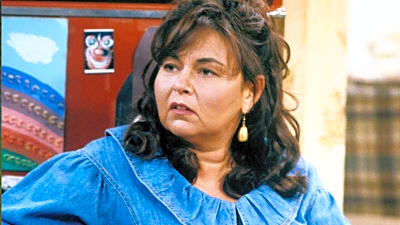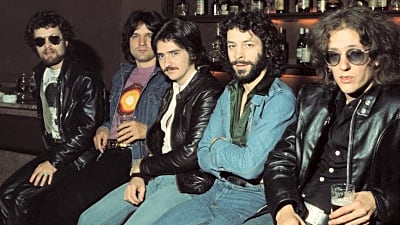- Home
- Quizzes
- My Quiz Activity
- Newsletters
- MY FAVORITES
- Add Sports/Teams
- SPORTS
-
NFL
- NFL Home
- Arizona Cardinals
- Atlanta Falcons
- Baltimore Ravens
- Buffalo Bills
- Carolina Panthers
- Chicago Bears
- Cincinnati Bengals
- Cleveland Browns
- Dallas Cowboys
- Denver Broncos
- Detroit Lions
- Green Bay Packers
- Houston Texans
- Indianapolis Colts
- Jacksonville Jaguars
- Kansas City Chiefs
- Las Vegas Raiders
- Los Angeles Chargers
- Los Angeles Rams
- Miami Dolphins
- Minnesota Vikings
- New England Patriots
- New Orleans Saints
- New York Jets
- New York Giants
- Philadelphia Eagles
- Pittsburgh Steelers
- San Francisco 49ers
- Seattle Seahawks
- Tampa Bay Buccaneers
- Tennessee Titans
- Washington Commanders
-
MLB
- MLB Home
- Athletics
- Arizona Diamondbacks
- Atlanta Braves
- Baltimore Orioles
- Boston Red Sox
- Chicago White Sox
- Chicago Cubs
- Cincinnati Reds
- Cleveland Guardians
- Colorado Rockies
- Detroit Tigers
- Houston Astros
- Kansas City Royals
- Los Angeles Angels
- Los Angeles Dodgers
- Miami Marlins
- Milwaukee Brewers
- Minnesota Twins
- New York Yankees
- New York Mets
- Philadelphia Phillies
- Pittsburgh Pirates
- San Diego Padres
- San Francisco Giants
- Seattle Mariners
- St. Louis Cardinals
- Tampa Bay Rays
- Texas Rangers
- Toronto Blue Jays
- Washington Nationals
-
NBA
- NBA Home
- Atlanta Hawks
- Boston Celtics
- Brooklyn Nets
- Charlotte Hornets
- Chicago Bulls
- Cleveland Cavaliers
- Dallas Mavericks
- Denver Nuggets
- Detroit Pistons
- Golden State Warriors
- Houston Rockets
- Indiana Pacers
- Los Angeles Clippers
- Los Angeles Lakers
- Memphis Grizzlies
- Miami Heat
- Milwaukee Bucks
- Minnesota Timberwolves
- New Orleans Pelicans
- New York Knicks
- Oklahoma City Thunder
- Orlando Magic
- Philadelphia 76ers
- Phoenix Suns
- Portland Trail Blazers
- Sacramento Kings
- San Antonio Spurs
- Toronto Raptors
- Utah Jazz
- Washington Wizards
-
NHL
- NHL Home
- Anaheim Ducks
- Boston Bruins
- Buffalo Sabres
- Calgary Flames
- Carolina Hurricanes
- Chicago Blackhawks
- Colorado Avalanche
- Columbus Blue Jackets
- Dallas Stars
- Detroit Red Wings
- Edmonton Oilers
- Florida Panthers
- Los Angeles Kings
- Minnesota Wild
- Montreal Canadiens
- Nashville Predators
- New Jersey Devils
- New York Islanders
- New York Rangers
- Ottawa Senators
- Philadelphia Flyers
- Pittsburgh Penguins
- San Jose Sharks
- Seattle Kraken
- St. Louis Blues
- Tampa Bay Lightning
- Toronto Maple Leafs
- Utah Mammoth
- Vancouver Canucks
- Vegas Golden Knights
- Washington Capitals
- Winnipeg Jets
- NCAAF
- NCAAM
- Olympics
- Boxing
- Entertainment
- Lifestyle
- Golf
- MMA
- Soccer
- Tennis
- Wrestling
- Sports Betting
- More Sports
- RESOURCES
- My Account
- YB on Facebook
- YB on Twitter
- YB on Flipboard
- Contact Us
- Privacy Policy
- Terms of Service

The worst films from 50 great directors
Aside from Charles Laughton, no filmmaker of note has a perfect record. And that's not only fine: That's the way it should be. Every artist needs the space to fail — miserably, spectacularly, hideously. It's how you grow, how you find your creative limits or, even better, how you learn to surpass them. It's also important for viewers to not only allow for misfires but to also embrace and study them. It's when our favorite directors fall short of their visions that we often see the seeds of their next triumphs or come to understand previous works that we didn't quite connect the first time around. And, well, sometimes they just go and make a stinker. In the interest of proving that our favorite directors are fallible, here's a list of 50 lesser works from 50 gods of cinema.
Steven Spielberg - "Indiana Jones and the Kingdom of the Crystal Skull"
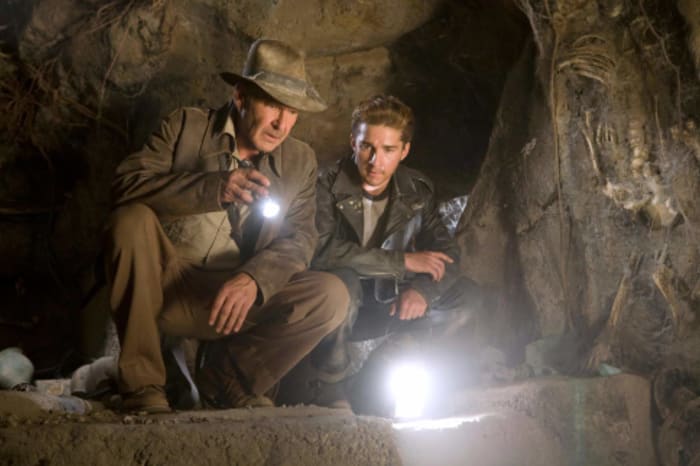
Spielberg’s had his stumbles (“Always," “Hook," “The Terminal”), but you can always see the thought and care put into the constructing of even his most baffling misfires (“The BFG”). This is not the case with the fourth Indiana Jones film: a misbegotten reach for former crowd-pleasing glory that’s the cinematic equivalent of a cash-grab reunion tour. It’s a lethargic replay of the hits (“Hey, it’s the warehouse where the ark is stored!”) bogged down by some ill-advised new tracks (the campus chase is listlessly executed) and aesthetically undermined by Janusz Kaminski halfheartedly trying to appropriate cinematographer Douglas Slocombe’s visual style. It’s Spielberg’s only truly bad movie.
Martin Scorsese - "Boxcar Bertha"

A “Bonnie and Clyde” knockoff made for Hollywood’s schlockmeister general, Roger Corman, “Boxcar Bertha” isn’t a terrible movie. But it also isn’t a subversive piece of exploitation cinema that shows off a promising new talent bursting at the seams to make personal films. Scorsese mostly colors within the lines here and gets solid performances from Barbara Hershey, David Carradine and Barry Primus. But the movie is most valuable for prompting John Cassavetes to call it a “piece of s**t” to Scorsese’s face. Duly chastened, Scorsese turned around and made “Mean Streets."
John Ford - "The Plough and the Stars"

You’d think Sean O’Casey’s superb finale to his “Dublin Trilogy” would be ready-made for a bold Irish-American auteur like John Ford, but the material can’t survive Ford’s uncharacteristically limp staging or, most damagingly, the studio-mandated miscasting of Preston Foster and Barbara Stanwyck. RKO hired another director to do reshoots, which further gutted the play’s political message (and led Ford to disown the movie completely). What’s left is of interest only to Ford completists and for those who refuse to believe Stanwyck can give a lousy performance. You can see "The Quiet Man" from here, but it's still a ways off.
Steven Soderbergh - "Full Frontal"

Soderbergh was on a hot streak when he concocted this quirky drama about actors, writers, producers and regular old people making it through another day in Hollywood. The film slips back and forth between real life and a film-within-a-film and not in a skillful or interesting manner. There are some isolated bits that work (Blair Underwood is particularly good as the star of the fictional film), but it winds up feeling like a technical exercise ala Mike Figgis’ “Timecode." Soderbergh requested that his actors supply their own wardrobes, do their own makeup and so on to give the film an extra level of authenticity, which is interesting only as a production note. It’s an interesting failure from a master that anticipates the stripped-down approach he now employs to great success.
Alfred Hitchcock - "Jamaica Inn"

This adaptation of Daphne du Maurier’s novel was so lousy that the author initially withheld the rights to “Rebecca” from Hitchcock. What a tragedy that would’ve been. Hitch was hot off the success of “The Lady Vanishes” and about to make the leap from England to Hollywood when he took on this film. You can sense the distraction. There are some redeeming elements: Charles Laughton is delightfully fiendish as the corrupt justice of the peace, while Maureen O’Hara gives her all in her first starring role. Unfortunately the pacing is sluggish and — despite the efforts of major talents like Sidney Gilliat, Joan Harrison, J.B. Priestley and Alma Reville — the story fails to generate much in the way of suspense.
Robert Altman - "Quintet"

Altman teamed with screenwriters Patricia Resnick and Frank Barhydt for this misconceived piece of post-apocalyptic sci-fi starring Paul Newman as a seal hunter seeking vengeance for the murder of his pregnant wife. To slake his bloodlust, he must enter a survival tournament in which the losing participants are executed in real life. Had Walter Hill directed this film as Altman initially intended, its convolutions and lack of narrative focus might’ve been cleaned up. The concept itself isn’t bad, but the execution is Altman at his noodling worst.
Spike Lee - "She Hate Me"

Lee and co-writer Michael Genet seem to be in make-it-up-as-we-go-along mode with this kinda-sorta satire about a successful pharmaceutical executive (Anthony Mackie) who gets fired and completely blackballed for whistleblowing on his corrupt company. Desperate for a new gig, he begins selling his sperm at $10,000 a pop to lesbians eager to have children. There’s potential here, but Lee gives into his worst storytelling instincts, bloating the narrative to include the mob and, most extraneously, a rocky relationship between his parents (Lonette McKee and Jim Brown). If you ever wanted to know what “Jungle Fever” would look like if nothing worked, here’s 138 minutes of a phenomenal talent swinging blindly at wild pitches.
Howard Hawks - "Red Line 7000"
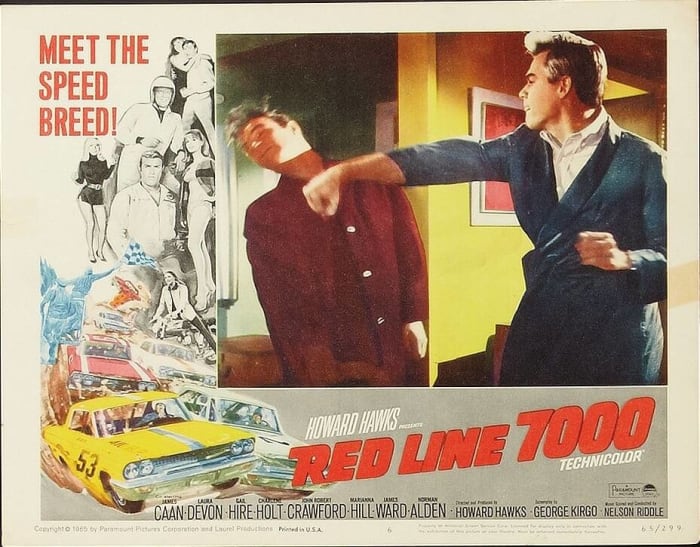
It’s tempting to cite Hawks’s derivative “Rio Lobo” as his weakest film, but you can’t knock a master for stealing from his own brilliant work. Hawks never made an awful movie, but he got in the neighborhood with this mostly uninvolving action-drama about hot-blooded stock car racers. The director is on familiar ground with the romantic rivalries and uneasy male bonding, but George Kirgo’s screenplay lacks the snap and wit you expect from a Hawks film. Despite the novelty of mounting cameras on one of the cars, the racing scenes are completely unmemorable.
François Truffaut - "The Green Room"

This film is worth seeing for Nestor Almendros’ autumnal cinematography alone, but you’ll have to wait for a repertory screening or a proper Blu-ray release to appreciate it. Given the middling esteem in which the film is held, you’re going to be waiting a while. An ambitious drama based on three Henry James short stories, the film stars Truffaut and Nathalie Baye as two death-obsessed individuals driven to create a memorial to all the dead people who mattered in their lives. Someone like Edward Yang might’ve nailed this material, but Truffaut can’t find his way in emotionally. It doesn’t help that, despite his grief, we don’t really respond to Truffaut’s main character. It’s an odd misfire, but your mileage may vary. It has its admirers.
Jean-Luc Godard - "A Film Like Any Other"

Positively interminable. Godard’s first post-cinema effort consists of student radicals discussing a revolution that would never arrive. Listening to their hopelessly naïve ideas is bad enough; having to contend with Godard’s intentionally ugly and uninvolving framing – as well as his cloddish efforts at sound collage – will leave you in George C. Scott ala “Hardcore” hysterics. Most of Godard’s political work is hard to take nowadays, but this film is particularly hateful.
Frank Capra - "Pocketful of Miracles"
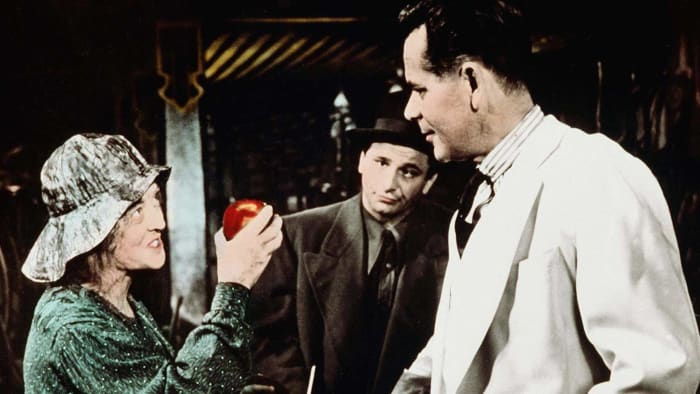
Frank Capra seemingly delved into self-parody with this outlandishly sentimental tale of a kindhearted gangster (Glenn Ford) who conspires to help a kindhearted, down-and-out apple merchant (Bette Davis) fool her daughter into believing she’s a glamorous Manhattan socialite. Despite the story’s Damon Runyon roots, there’s zero charm or zip to the proceedings; Capra’s just going through the mawkish motions, which drains the life out of all of the performances. Mercifully, this would be Capra’s final film.
George Lucas - "Star Wars: Episode II - Attack of the Clones"

While “The Phantom Menace” has long been the whipping boy of the “Star Wars” prequel trilogy, it’s the middle entry in the cycle that deserves the majority of the opprobrium. There are things to like (Obi-Wan gumshoeing on Kamino, Christopher Lee hamming it up as Count Dooku, Watto), but what’s supposed to be the heart of the trilogy — the blossoming of a ill-fated romance between Anakin (Hayden Christensen) and Padmé (Natalie Portman) — is written/performed with all the depth and sensitivity of a bad “One Tree Hill” episode. Although, in terms of series continuity, Ani whining about sand is about as grating as Luke griping about power converters, so maybe this was a carefully orchestrated annoyance on Lucas’ part.
Francis Ford Coppola - "Jack"

When your dream of creating an artist-friendly studio in the heart of Hollywood gets shattered into a million pieces, you lose a lot of things: your passion to create, your ability to make the kinds of films that matter to you and, most importantly, other people’s money. To pay off his myriad markers, Coppola took a number of for-hire gigs throughout the ‘80s and the ‘90s, none more cringe-worthy than this sub-Spielbergian gloss on the tragic condition of Werner syndrome . Robin Williams plays the rapidly aging title character with his usual riff-happy aplomb, which is totally out of place in what should be a melancholy dramedy. Visually, Coppola hacks it out like a disgruntled pro.
Brian De Palma - "Domino"

Given the challenges De Palma faced on this production (the shooting schedule got massivley truncated when financiers failed to deliver on the promised budget), it’s a miracle that “Domino” is coherent and occasionally thrilling. But the fact remains that it lacks the requisite production value, which, it seems, leaves De Palma to focus his creative energies on two terrific set pieces (a rooftop chase and an attempted drone assassination at a bullfight). When De Palma is working in this mode, he needs a budget and sense of scale, both of which were denied him here.
Jonathan Demme - "The Truth About Charlie"

Ostensibly a remake of Stanley Donen’s “Charade," Demme’s “The Truth About Charlie” is little more than an ephemeral love letter to Paris and the French New Wave. This is not enough to sustain a 104-minute feature, but it is enough to make you smile on occasion, particularly as some of the movement’s luminaries — Charles Aznavour, Agnès Varda and Anna Karina — unexpectedly turn up. If you lack a fondness for such things, this could be a rough sit.
Paul Verhoeven - "Hollow Man"

Paul Verhoeven’s genius for subverting trashy, noxious material is sorely lacking in this humorless variation on “The Invisible Man." The transformation f/x are astonishing, and Kevin Bacon is surprisingly well cast as a mad scientist, but narratively it’s bound to a slasher film template. It’s a disconcertingly cruel and angry film built around a sociopath who’s upset that his ex-girlfriend is cheating on him with a colleague. An alert Verhoeven would’ve found a way to upend the script’s nastiness; instead, he just revels in it.
Kathryn Bigelow - "The Weight of Water"

Kathryn Bigelow bounces back and forth between a present-day tale of a vacationing news photographer (Catherine McCormack) researching the 19th-century murder of two women and a retelling of the events she’s investigating (which is continually informed by new information). It’s trying to be a mystery and a domestic drama — the reporter’s husband (Sean Penn) is shamelessly flirting with the wife (Elizabeth Hurley) of one of their companions — but the two narratives feel oddly disparate. It’s a cold, passionless movie.
John Woo - "Paycheck"
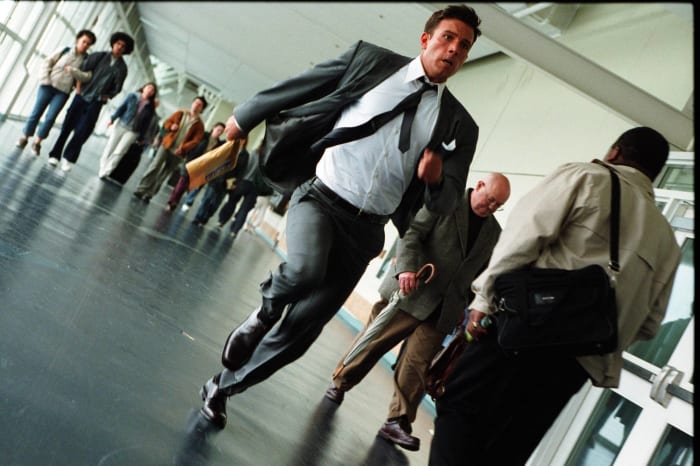
John Woo’s Hollywood run was far from the disaster it’s often made out to be: “Hard Target” was undermined by the studio, but the theatrical cut is still a blast; “Broken Arrow” is a hugely satisfying mid-‘90s actioner; “Face/Off” is perfection; “Mission: Impossible 2” is an oopsie; and “Windtalkers” is a vital World War II film. And then there’s “Paycheck," a Philip K. Dıck adaptation from a sci-fi resistant storyteller. As a meat-and-potatoes action film, Woo delivers just enough spectacularly shot set pieces to justify its existence. But as with “M:I2," he’s desperate to infuse the modern formula with a Hitchcockian flair. He doesn’t care about the premise. That’s a MacGuffin to him. Woo’s all about classic Hollywood: scale, suspense and sex — all at the expense of real-world logic. 2000s Hollywood would never let him craft that kind of film, and thus he fled.
Ang Lee - "Gemini Man"

Ang Lee’s commitment to the high-frame-rate format (his recent films have been shot at 120 frames-per-second, much higher than the industry standard 24fps) is irksome, but the towering quality of the storytelling and performances typically offset the wonky visuals. Not so with this oddly pointless action flick that pit aging hitman Will Smith against a younger clone of himself. Aside from an brilliantly staged-and-executed motorcycle chase, “Gemini Man” plays like a ho-hum 1990s smash-up, which makes sense because it was initially developed in 1997 as a star vehicle for the likes of Harrison Ford, Mel Gibson or Sean Connery. Lee’s usually drawn to a deeply human theme, but it feels like the tech was the attraction here.
Stanley Kubrick - "A Clockwork Orange"

No one is going to argue the cultural or technical significance of “A Clockwork Orange." And it is obviously not Kubrick’s fault that the film has frequently been misread as a call to arms for nihilists, bigots and so on. But the film is the film, and it’s as bilious as its main character. Unlike Kubrick’s other major works, which underwent protracted development periods, “A Clockwork Orange” was a relative rush job (the replacement film for “Napoleon”), and there’s a lack of consideration in terms of theme. The looseness is unusual for Kubrick — nothing in his career predicts the “William Tell Overture” sex scene — and occasionally welcome, but it’s dead-end misanthropy.
Peter Weir - "Green Card"

Peter Weir had conquered Hollywood. “Witness” was a critical and commercial hit. Yes, “The Mosquito Coast” flopped (undeservedly, as it’s a magnificent film), but the Australian auteur made up for it and then some with “Dead Poets Society." Weir could do as he damn well pleased, and so he did. He wrote, produced and directed the romantic comedy “Green Card” as a means of introducing French superstar Gérard Depardieu to U.S. audiences. We all have ambitions in this life, and sometimes they make sense only to the individual. If this was the palate cleanser Weir needed to make “Fearless," all hail “Green Card."
Woody Allen - "Anything Else"

When you make a film a year for roughly half a century, you’re bound to miss the mark every now and then. Woody Allen has missed the mark a lot. When he was transitioning from being perceived as a comedy writer-director in the late ‘70s and early ‘80s, his dramas were generally considered shallow and imitative of his heroes (particularly Bergman). Today, they look like “Wild Strawberries” compared to the dusty, bottom-of-the-drawer comedies he’s churned out since the turn of the century. The nadir has to be “Anything Else," a haphazardly cast relationship comedy laden with stale banter that plays like it was written in the early-‘60s. One half-expects a charge-a-plate gag to sneak through.
Agnès Varda - "One Hundred and One Nights"

Agnès Varda was incapable of making an uninteresting film, but this shamelessly sentimental trifle feting 100 years of motion pictures is essentially “Terror in the Aisles” for cinephiles. The cameos are fun, but the reason to watch is to check out Varda’s personally selected clip reel; it’s a movie mix tape from a true-blue gleaner that’ll leave you wanting to revisit all of your favorites.
Billy Wilder - "Buddy, Buddy"

“The Birdcage” aside, remaking a Francis Veber comedy is a losing proposition. This should’ve been clear to Hollywood when the formidable writing team of Billy Wilder and I.A.L. Diamond failed miserably to wring laughs out of his black comedy, “L’emmerdeur," in which a hitman’s (Walter Matthau) low profile is continually interrupted by the suicidal antics of a television censor (Jack Lemmon) in the apartment next door. Wilder had been hit-or-miss throughout the 1970s, but he’d never made anything as irredeemably lousy as this. It’s forced zaniness from a master who’d suddenly lost his touch.
Preston Sturges - "The Great Moment"

Preston Sturges reunited with Joel McCrea for this biopic about William Thomas Green Morton, the dentist who first demonstrated the effectiveness of ether as a surgical anesthetic. It’s a little unfair to single this film out as Sturges’ weakest; Paramount shelved it for two years and recut it to play as a comedy. What’s left is an unsatisfying, borderline incomprehensible mess that rarely exhibits the wit or intelligence of a classic Sturges film, which is bizarre given that it was something of a passion project for him.
Miloš Forman - "Goya's Ghosts"

Miloš Forman didn’t know how to make an uninteresting film, and that’s probably the best that can be said of his final feature, which tells the fictionalized story of Francisco Goya (Stellan Skarsgård) intervening in the Spanish Inquisition trial of one of his models (Natalie Portman). It isn’t as playful as Forman’s previous collaborations with screenwriter Jean-Claude Carrière (“Taking Off” and “Valmont”), but it’s one of the most gorgeously shot films he’s ever made thanks to the, apologies, painterly cinematography from cinematographer Javier Aguirresarobe. It also has a sense of political purpose that links up with his earlier works. It’s just not as much fun as those movies.
Alan J. Pakula - "Consenting Adults"

Alan J. Pakula doesn’t get enough credit for being a risk taker. While he’s best known for his masterful ‘70s thrillers (“Klute," “The Parallax View” and, in its way, “All the President’s Men”) and his shattering film of William Styron’s “Sophie’s Choice," Pakula had a taste for trash. It’s just that he didn’t know how to make lurid tales like “Dream Lover” and the worst film he ever made, “Consenting Adults," sing. Written by Matthew Chapman (who, on the basis of “Heart of Midnight” and “Color of Night” alone, knew from trash), it’s meant to be a delirious spin on the yuppie thrillers that sprung up in the wake of “Fatal Attraction." Pakula has the right cast for this type of film (Kevin Kline, Mary Elizabeth Mastrantonio and a dyed-blonde Kevin Spacey), but you keep wondering what Brian De Palma would’ve done with this material.
William Friedkin - "The Guardian"

William Friedkin returned to the horror genre for the first time since “The Exorcist," and what he did for demonic possession he decidedly did not do for people-eating trees. Friedkin took over this project after Sam Raimi, a man who knows a thing or two about killer trees, decided to make “Darkman." But here’s the twist: The druidic element was all Friedkin’s idea! Basically what was initially intended to be an evil nanny riff on “The Omen” became one of the most bizarre studio horror flicks of the last 30 years. Unfortunately Friedkin doesn’t bring his usual intensity to the production. It picks up a bit at the finale, but the Friedkin of “Cruising” and “To Live and Die in L.A.” never shows up to play.
John Carpenter - "Village of the Damned"

The first time John Carpenter remade a horror classic, he topped it with “The Thing." His second go-round at updating a sacred genre text didn’t go nearly as well. Carpenter and cinematographer Gary B. Kibbe take full, widescreen advantage of their Inverness, California, setting. But unlike “The Thing," which transformed the Nyby/Hawks B-movie into a full-blown Lovecraftian freak show, the screenplay for “Village of the Damned” feels like a rote re-do of the original. It’s wheelhouse sci-fi/horror material for Carpenter, but he treats it as a for-hire gig.
David Cronenberg - "M. Butterfly"

David Henry Hwang’s Tony-winning drama about a romance between a French diplomat and a beautiful Beijing opera performer, who turns out to be a male spy, gave David Cronenberg his first opportunity to prove he could thrive outside of horror. It’s an intelligent, careful adaptation — too careful. Cronenberg maintains an emotional distance, which sabotages what should be a devastating romantic tragedy. Jeremy Irons gives it his painfully repressed all, but there’s no fire behind the production.
Sidney Lumet - "A Stranger Among Us"

This is a tough call. Sidney Lumet's big-budget botch of “The Wiz” besmirched the reputation of a fine musical, and, in bombing, helped derail the 1970s black film renaissance. But it can’t match the mind-blowing ludicrousness of Melanie Griffith playing a loose-cannon New York City cop going undercover in Brooklyn to investigate the murder of a Hasidic diamond-cutter. Lumet is one of the great chroniclers of life and crime in the Big Apple, but everything’s off here. It’s clearly shot in Ridgewood, Queens, which, given the film’s specific setting, is akin to shooting “Do the Right Thing” in Midtown. And then there’s Griffith, somehow more egregiously miscast here than she was in Brian De Palma’s “The Bonfire of the Vanities." This film did, however, provide the backdrop for Lumet’s essential “Making Movies," demonstrating once again that massive flops often make for great books.
Joel and Ethan Coen - "The Ladykillers"

The Coens were in full-blown zany mode in 2003 and 2004, crafting two of their most overtly mainstream comedies in the seeming hopes of enjoying the kind of blockbuster success they’d been denied throughout their careers. 2003’s “Intolerable Cruelty” is an overeager-to-please comedy brightened by high-wattage star turns from George Clooney and Catherine Zeta-Jones and Cedric the Entertainer at his scene-stealing best. “The Ladykillers” relies heavily on Tom Hanks’ Southern-fried goof of a performance; it’s a hoot for a while but exhausting in the long run. So is the film. Some were starting to wonder if the Coens were losing their touch. Three years later, they dropped a little ditty called “No Country for Old Men." If they had to make “The Ladykillers” to get there, consider it one of the most rewarding creative missteps in movie history.
Ridley Scott - "A Good Year"

Ridley Scott followed up his mistreated-by-the-studio epic “Kingdom of Heaven” with this featherweight romantic comedy about a jerky stockbroker (Russell Crowe) who discovers he’s inherited a vineyard in Southeastern France. The film’s primary locations were just eight minutes from Scott’s house, which suggests this was more of a moviemaking staycation for a director looking to recharge his creative batteries after watching one of his finest works get butchered because Fox wanted to recoup at the box office. It’s easy on the eyes, but at 118 minutes, it's far too bloated given its modest ambitions. Hope everyone had a lovely holiday.
Oliver Stone - "Snowden"

Oliver Stone’s recounting of Edward Snowden’s whistleblowing heroics is the perfect movie for who walked out of Laura Poitras’ “Citizenfour” craving the lethargic, fan-fic version of the story. It’s as disconcertingly hagiographic as the documentary, but it lacks the cinematic razzle-dazzle that made “Born on the Fourth of July," “JFK” and “Natural Born Killers” so exhilarating (even if you thought Stone was completely full of s**t). The filmmaker’s glory days ended when he parted ways with his longtime collaborators — namely Robert Richardson, production designer Victor Kempster and the rock-star editorial team headlined by Claire Simpson, Joe Hutshing and Pietro Scalia. Everything since has been diminishing returns. Stone’s obsequious interviews with Russian autocrat Vladimir Putin (aired on HBO in 2017) ensured he’ll never be taken seriously again as a political thinker.
David Lynch - "Inland Empire"

Ugliness is an essential component of David Lynch’s films, but it’s never been so aggressively foregrounded as it is in “Inland Empire." This is a relentlessly unpleasant experience on an aesthetic and thematic level, and while Laura Dern is absolutely spectacular as a film actress who gradually finds herself possessed by her character, it rarely allows for the moments of exhilaration and humor that soften the blow of the rough passages. As a piece of experimental digital filmmaking, it’s a monumental achievement. But at 179 minutes, it’s a lot to take — and you really need to be in the right mood to take it. If you’re wondering why this entry isn’t dedicated to “Dune," you need to watch “Dune” again. And again. And again until its gonzo greatness penetrates your thick skull.
Wong Kar-wai - "My Blueberry Nights"
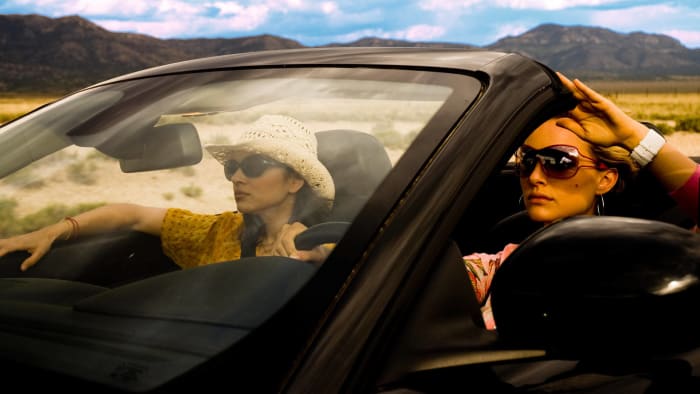
It's an outsider’s vision of America that is alternately beguiling and frustrating for reasons that, unfortunately, rest heavily on Wong Kar-wai’s decision to cast musician Nora Jones as the lead in her first-ever acting role. It doesn’t help that Wong’s screenplay, written with master crime novelist Lawrence Block, is laden with the kind of rueful/wonderstruck philosophizing that makes many of his Chinese films so enchanting. It takes a special kind of talent to make his dialogue drift and dazzle, and she just can’t find the melody. There are moments to savor from Natalie Portman, Rachel Weisz and David Strathairn, but the magic mostly misses Wong this time.
Alfonso Cuarón - "Great Expectations"

Alfonso Cuarón's visual gifts are on ample display in this adaptation of the Charles Dickens classic, but screenwriter Mitch Glazer’s bizarrely truncated take on the material leaves you wondering why they bothered. Cuarón and cinematographer Emmanuel Lubezki do well with the childhood segment of the tale, occasionally casting the same dreamy spell that lifted “A Little Princess” up into the heavens. When the story shifts to New York, the spell is completely broken. Ethan Hawke gives one of the worst performances of his career, which might be due to his dissatisfaction with the production (a troubled one per producer Art Linson’s memoir, “That Just Happened”). It’s a depressing waste of Cuarón’s talents and one that periodically drove him from Hollywood. The result: “Y Tu Mamá También”…and glory.
Quentin Tarantino - "Kill Bill Vol. 1"

Quentin Tarantino front-loaded the first part of his “Kill Bill” saga with jaw-dropping action set pieces, non-stop gushers of arterial blood and not much in the way of heart. By the close of the film, Beatrix Kiddo (Uma Thurman) seems lost in the metaphorical forest spoken of by Hattori Hanzo, and you’re left wondering if you really need to watch another two hours of bitter bloodletting. Then David Carradine delivers what’s meant to be a gut-punch of a cliffhanger: “Is she aware her daughter is still alive?” If it feels artless and tacked-on, that’s because it is. Beatrix is meant to discover this vital piece of information from Sofie Fatale (Julie Dreyfus), and that’s meant to a) give her newfound purpose at a moment when all hope is lost, and b) juice the audience for the film’s more contemplative and stirring second half. But Harvey Weinstein prevailed upon Tarantino to split the film in two, and thus a masterpiece was compromised.
Christopher Nolan - "The Dark Knight Rises"

It wasn’t unreasonable to expect Christopher Nolan to stick the landing to his trilogy of Batman films: “The Dark Knight” had been a vast improvement on “Batman Begins," and, in between caped-crusader flicks, he’d made the marvelous “Inception." The IMAX preview released in January 2012 tolled a faint warning when the audio had to be remixed due to audiences not understanding a word out of Bane’s mumble-mouth. Then the movie showed up seven months later, and Bane’s goofy voice was the best thing about the disjointed, strangely truncated mess. Bruce Wayne’s arc — which takes him out of Gotham for a protracted segment of the film — is the story’s least interesting element. Batman’s often been a supporting player in his own movies, but he’s never been this much of a crushing bore. His supposed sacrifice is anticlimactic and unemotional because Batman is never dead for long. Freed from franchise filmmaking, Nolan went on to make two of his best movies: “Interstellar” and “Dunkirk."
Paul Thomas Anderson - "Magnolia"
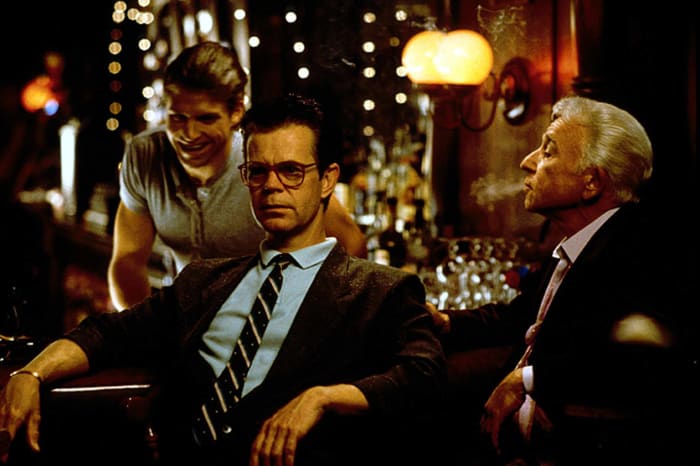
Hear me out! “Magnolia” is a film of undeniable greatness. The opening montage that bleeds into Aimee Mann’s haunting rendition of “One” — through which we’re effortlessly, economically introduced to the film’s ensemble of deeply wounded characters — is as good as movies get. Other stretches — Donnie Smith’s meltdown at the bar, Gwenovier cracking Frank T.J. Mackey wide open, the “Wise Up” sing-a-long — leave you vibrating. “Magnolia” is a madly ambitious symphony of searing pain and fiery catharsis from a filmmaker nearing the end of his first artistic phase; a grand purgation that slams the door shut on the past. As such, Anderson leaves it all hanging out, and…it’s sometimes a bit much. Several key scenes —Julianne Moore’s pharmacy freak-out, her attorney’s office freak-out and the John C. Reilly/Melora Walters dinner date — are overwritten and played to the campy hilt. Anderson learned how to balance these tones in his next creative phase, and now he’s one of our greatest living filmmakers.
Peter Jackson - "The Hobbit"

After missing the creative/commercial mark with “King Kong” and “The Lovely Bones," Peter Jackson reverted to Tolkien, and — correctly sensing a opportunity to make a killing via the IP that elevated him to the upper-blockbuster-echelon of Spielberg, Cameron and Lucas — blew out the 310-page “The Hobbit” into a three-part, 532-minute excuse to tinker with new high-frame-rate technology. Only the opening chapter, “An Unexpected Journey," captured a scintilla of the magic that endeared “The Lord of the Rings” to moviegoers all over the world. The punishingly long and bloated “The Desolation of Smaug” was the most painful of the three to sit through, but the entire endeavor should be recognized and bemoaned as a cynical whole. Jackson’s recent World War I documentary, “They Shall Not Grow Old," reminded us of what this uniquely talented director can do when he’s emotionally engaged.
Danny Boyle - "The Beach"

Alex Garland’s “The Beach” is a defining piece of Gen X literature, but you’d never know it from Danny Boyle’s big-screen adaptation. John Hodge is a great screenwriter, but he can’t replicate Garland’s spiky, pop-culture-infused prose or tap a healthy narrative vein. The pleasures are strictly visual: Darius Khondji’s lensing of the Ko Phi Phi Lee paradise, Leonardo DiCaprio in all his boyish glory, Virginie Ledoyen verily melting the screen with a single insouciant glance and Tilda Swinton devouring Leo whole as her own, blue-eyed boy toy. It was Boyle’s second studio bomb in a row (following the too-ballsy-to-hate “A Life Less Ordinary”), but he found his footing with “28 Days Later."
David Fincher - "The Girl with the Dragon Tattoo"

Stieg Larsson’s bestselling thriller receives the deluxe Hollywood treatment from David Fincher, and it’s like watching Glenn Gould play “Chopsticks." Fincher and screenwriter Steven Zaillian do the novel narrative justice, but they shortchange its main character. While Rooney Mara hurls herself into the role of Lisbeth Salander, Fincher winds up treating her as a spurned schoolgirl. It’s a strangely miscalculated film from a brilliant director who knows better — and who would do better a few years later on this count with the delightfully toxic “Gone Girl."
Roman Polanski - "Pirates"
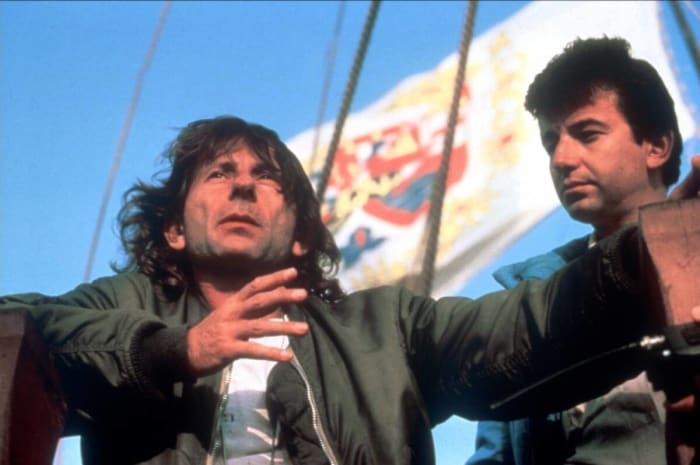
This is, no joke, Roman Polanski’s “Pirates of the Caribbean." He loves Disneyland and dearly wanted to make a film that recaptured the spirit of one of the park’s signature rides. What he delivered was a crude, resoundingly unfunny mess that, if nothing else, depicts the scallywags’ milieu in a tactile manner that shrieks for an Odorama presentation. Walter Matthau fetched a $1 million payday, which was hard to come by in 1986. He spent the rest of his life trashing the film when prompted, which was by far the most entertaining thing to come out of this awful movie.
Clint Eastwood - "Midnight in the Garden of Good and Evil"

John Berendt’s affectionately colorful depiction of Savannah, Georgia, gets the Clint Eastwood missionary treatment. To be fair, Eastwood has demonstrated a sharp eye for eccentric character detail but only in the context of a finely honed narrative. Alas, by creating an outsider audience surrogate in John Cusack’s journalist, he turns Berendt’s ambling tale into a freak show. It’s a disappointing, utterly disinterested adaptation. This should’ve been a Robert Altman film.
David Lean - "Ryan's Daughter"

A mere eight years after “Lawrence of Arabia," film critics charged and convicted David Lean of cinematic war crimes for this antiquated romantic epic set against the Irish Revolution. In response, Lean basically quit filmmaking, returning only in 1984 for a good adaptation of E.M. Forster’s “A Passage to India." There’s not enough story here to justify a 200-minute movie, but Robert Bolt’s screenplay is not without its charms or insights. Had Paul Scofield consented to play the role of Shaughnessy (instead of an unconvincingly Irish Robert Mitchum), maybe this whole thing works. In any event, it’s a misfire but not a disaster. That we lost Lean for 14 years because of the overly harsh critical response is an argument against dog-piling.
Terrence Malick - "Song to Song"

Between 1973 and 2011, Terrence Malick made five films. His next five blasted out like locker-room champagne spray between 2012 and 2019. Clearly drunk on the intimacy and fluidity of digital filmmaking, Malick is an artist reborn. This is a gift. Unfortunately most of the films play like star-studded journal noodlings. The weakest of the bunch has to be “Song to Song," an Austin-based music drama that sputters for two-plus hours in search of a coherent narrative or unifying theme. While it’s hardly taxing to watch the likes of Natalie Portman, Rooney Mara and Ryan Gosling shot by cinematographer Emmanuel Lubezki, it’s a doughy meal. Maybe let these ideas bake a little longer, Terry.
Pedro Almodóvar - "Kika"
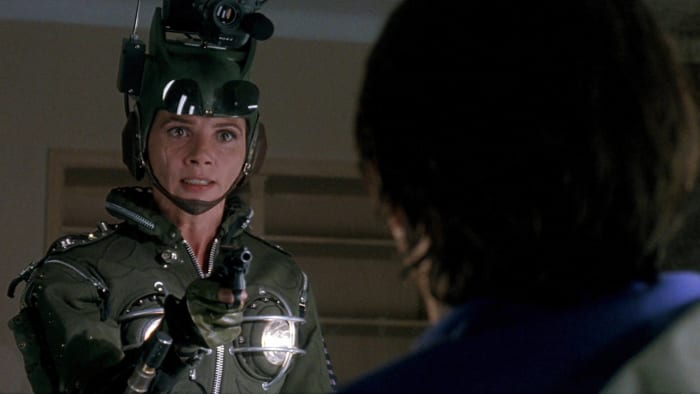
His acolytes will disagree, but given his consistently splendid output over the last two decades, it’s hard to argue that Pedro Almodóvar didn’t go through a serious artistic slump throughout most of the 1990s. “High Heels," “The Flower of My Secret” and “Live Flesh” were a far cry from the ribald genius of “Women on the Verge of a Nervous Breakdown” and “Tie Me Up, Tie Me Down." They’re respectable efforts compared to the frustratingly unfocused “Kika”. Almodóvar was prescient in lampooning the burgeoning reality show culture, but the film quickly spins off into shock-for-shock’s-sake nonsense. His didn’t have the formalist chops to pay homage to Hitchcock and Powell like he wanted to, but he would eventually get there with “Bad Education." And you don’t get there if you don’t let yourself go a little crazy sometimes.
Alejandro González Iñárritu - "21 Grams"

What to do with Alejandro González Iñárritu? He’s a precociously talented filmmaker with two Best Director Oscars, but his movies tend to be single-serving triumphs. Once you’ve seen “Babel," “Birdman or (The Unexpected Virtue of Ignorance)” or “The Revenant”, you’ve gotten everything they have to give. This lack of nuance has been his bread-and-butter throughout his career, and it’s never been more annoying than in “21 Grams," a torpid triptych in which symbols of the characters’ tragedies pile up in an empty swimming pool. It’s prettily photographed grief porn.
George A. Romero - "Diary of the Dead"

George A. Romero had just scored a career reviving hit with “Land of the Dead” when he decided to give his long-running zombie franchise the found-footage treatment. On the plus side, it’s not a cranky old man’s take on the millennial compulsion to record every single second of their mundane lives. And yet…maybe it should’ve been? It’s mostly a formal exercise for Romero. He’s toying with the format, but he doesn’t have anything terribly trenchant to say about it. He was much more at home with what wound up being his final film, “Survival of the Dead." That was a Western. Romero loved Westerns.
Jeremy Smith is a freelance entertainment writer and the author of "George Clooney: Anatomy of an Actor". His second book, "When It Was Cool", is due out in 2021.
More must-reads:
- 20 celebrities who became legitimately famous from TikTok
- 76 notable global cities and the films that represent them
- 20 celebrity feuds we’re still reeling over
Customize Your Newsletter
 +
+
Get the latest news and rumors, customized to your favorite sports and teams. Emailed daily. Always free!
PRIVACY POLICY EDITORIAL POLICY CONTACT US
ABOUT YARDBARKER TERMS OF SERVICE
Use of this website (including any and all parts and
components) constitutes your acceptance of these
Terms of Service and Privacy Policy.
This site is for entertainment purposes only.
There is no gambling offered on this site.
Gambling Problem? Call 1-800-Gambler.


